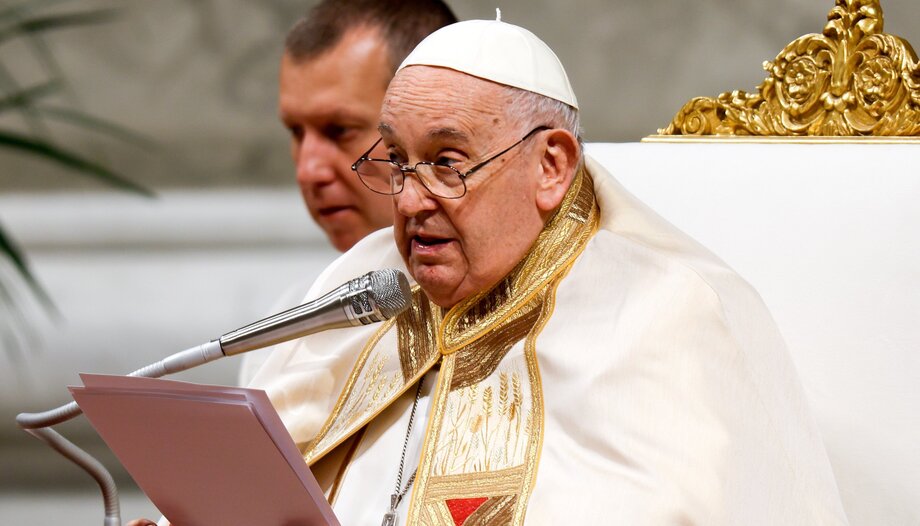In the catechetical session of the Audience of this Wednesday, which since the beginning of the year is dedicated to the "vices and virtues"The Pope reflected on sadness, "a cunning demon, which the desert fathers described as a worm of the heart, which erodes and empties those who harbor it", and on which he has already reflected. previously.
Francis defined sadness as "a dejection of the soul, a constant affliction that prevents human beings from experiencing joy in their existence". In his meditation, he pointed out that the Fathers made an important distinction.
"There is indeed a sadness that is proper to the Christian life and that with God's grace is transformed into joy: this, of course, must not be rejected and is part of the journey of conversion." In this line, he cited the parable of the prodigal son who suffered "a friendly sadness" that leads us to salvation.
"But there is also a second kind of sadness, which insinuates itself into the soul and causes it to fall into a state of despondency: it is this second kind of sadness that must be resolutely combated with all one's strength, because it comes from the Evil One. We also find this distinction in St. Paul, who, writing to the Corinthians, says: "The sorrow of God produces a repentance that leads to salvation and is not to be regretted, but the sorrow of the world produces death" (2 Cor 7:10).
Disciples of Emmaus, disillusioned heart
Here we can refer to the account of the disciples of EmmausThe Pope went on to say: "Those two disciples leave Jerusalem with a disillusioned heart, and entrust themselves to the stranger who accompanies them. "Those two disciples leave Jerusalem with a disillusioned heart, and entrust themselves to the stranger, who at a certain point accompanies them: "We had hoped that it was he, that is, Jesus, who would deliver Israel" (Lk 24:21).
The dynamics of sadness is linked to the experience of loss, the Pope affirms. "In the heart of the human being, hopes are born that are sometimes disappointed. It can be the desire to possess something that cannot be obtained; but also something important, such as the loss of an affection. When this happens, it is as if the heart of the human being falls into a precipice, and the feelings he experiences are discouragement, weakness of spirit, depression, anguish".
Overcoming sadness with holiness
To combat sadness, the Pontiff launched several messages, which can be summarized in two. In the first place, sadness "can be easily combated by guarding the thought of Christ's resurrection. However full life may be of contradictions, of defeated desires, of unfulfilled dreams, of lost friendships, thanks to the resurrection of Jesus we can believe that all will be saved".
"Faith casts out fear, and the resurrection of Christ removes sadness like the stone from the tomb. Every Christian's day is an exercise in resurrection".
The second weapon is holiness. "Georges Bernanos, in his famous novel "Diary of a Country Priest", makes the parish priest of Torcy say the following: "The Church has joy, all that joy that is reserved for this sad world. What they have done against it, they have done against joy". And another French writer, Léon Bloy, left us this wonderful sentence: "There is only one sadness, (...) that of not being saints!
Sunday, Our Lady of Lourdes, Day of the Sick
"May the Spirit of the Risen Jesus help us to overcome sadness with holiness," prayed the Pope, who also referred to the Virgin Mary in addressing pilgrims of different languages.
Specifically, before giving the Blessing, the Holy Father recalled. the feast of Our Lady of Lourdes Sunday the 11th, when the Church celebrates the feast of World Day of the Sick. "May Our Lady of Lourdes protect you with her maternal tenderness on your journey," the Pope prayed, addressing the patients and all the faithful.
Also, as usual in all his messages and addresses, Francis prayed for all those who suffer because of wars, for peace in the martyred Ukraine, for Palestine, Israel, the Rohingyas and others in so many places. "Let us pray for peace, we need peace," he asked the pilgrims in the Paul VI Hall.








